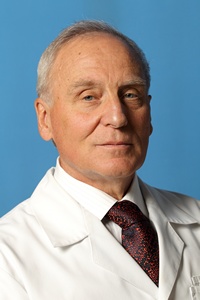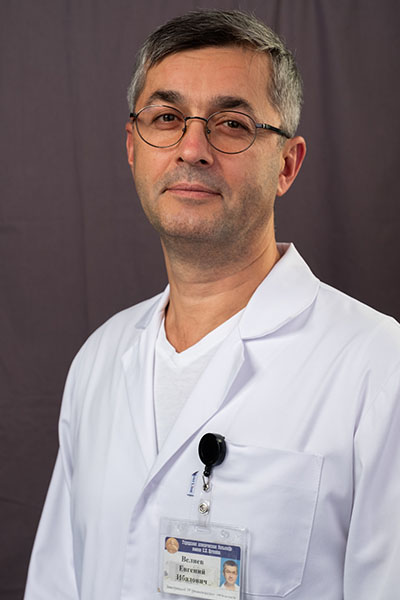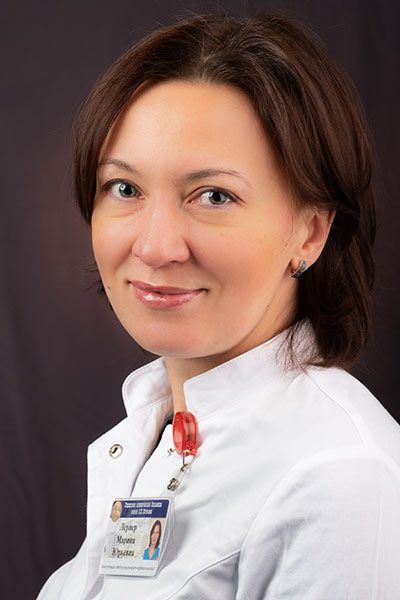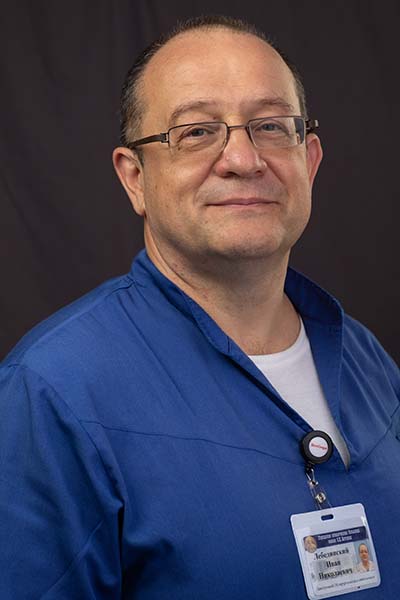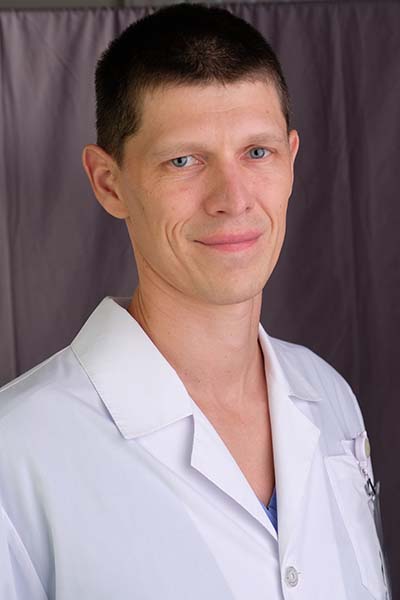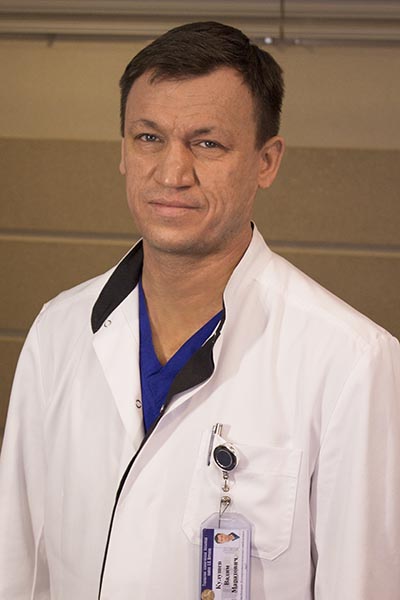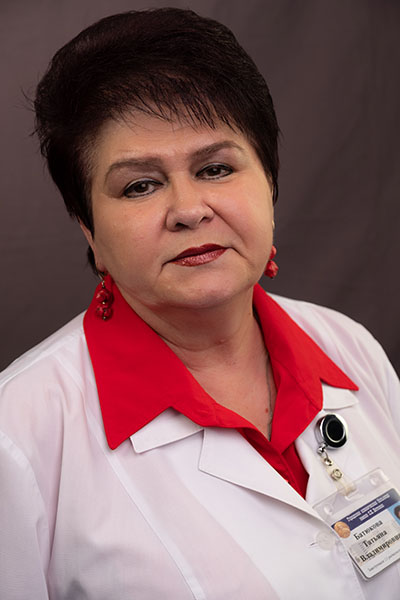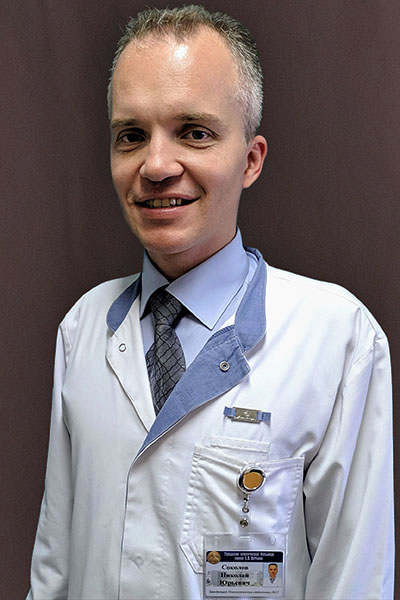Oncology


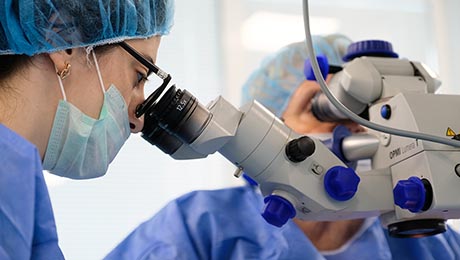
Oncology Department of Branch №1 of Botkin Hospital is the only one in Moscow where ophthalmo-oncological care is provided within the framework of compulsory health insurance (CHI).
The Oncology Department performs the functions of the city center of neoplasms of the visual organ of the city of Moscow and is the subject of the Moscow city cancer register.
The Department accepts for consultation and treatment of patients with a passport of the Russian Federation and the policy of CHI of the established sample, in the directions of both municipal and private medical institutions.
Dispensary registration and dispensary observation is carried out for residents of Moscow with malignant tumors of the organ of vision.
Ophthalmic Oncology on the basis of Branch №1 of Botkin Hospital (former ophthalmological clinical hospital in Moscow) has existed for more than half a century. Currently, the Department has a close-knit team of highly qualified specialists. All employees of the Department have valid certificates and constantly improve their skills. In the tradition of the Department friendly, sensitive attitude to patients.
The Department is equipped with modern medical equipment that allows you to quickly and accurately diagnose a tumor and provide treatment at the level of international standards.
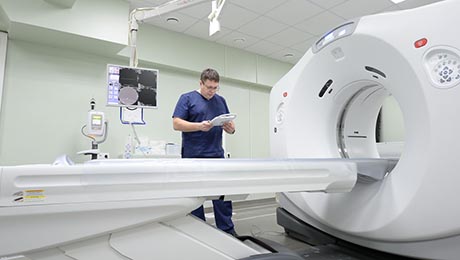
The Department provides radiation therapy to cancer patients with various forms of malignant diseases of the respiratory, digestive, Central nervous system, ENT organs, breast, genitourinary system, soft tissues, bones, lymphoproliferative diseases.
When planning treatment, tumor localization, stage of the process, histological structure, ways of regional metastasis, gender and age of the patient are taken into account. The choice of radiation therapy is based on the biological effects of different types of radiation, their energy, depth of penetration.
For each patient, mandatory planning of the radiation therapy process is carried out taking into account the size of the tumor and its radiosensitivity (creation of topometric sections with determination of the depth of the tumor focus, calculation of irradiation fields and preparation of procedural topometric maps of isodose radiation).
Dosimetry is the calculation of radiation fields in order to obtain the maximum effective dose to the lesion with minimal damage to the surrounding tissues. With the help of computed tomography, an individual topometric map of the patient is formed, a single and total dose of radiation is determined.
Every year more than 500 patients are treated in the Department. Taking into account the technique of the irradiation procedure and the high probability of radiation reactions, the treatment of patients is carried out mainly in stationary conditions.
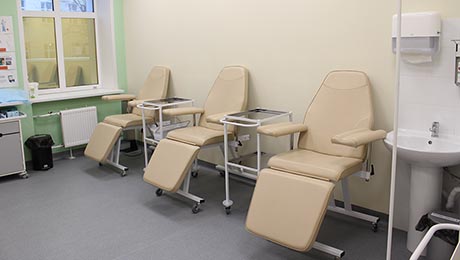
Every year, more than 1,000 patients receive therapy for tumor lesions of various organs and systems as an independent method or as a component of combined or complex treatment options.
The Department uses anticancer drugs, including cytostatics, targeted drugs, hormones, immunotherapy, bisphosphonates. Full use of assistive devices (colony stimulating factors, erythropoietins, antiemetic drugs, nutritional support).
Also, the Department has installed port systems and peak catheters in the unsatisfactory condition of peripheral veins with the risk of extravasation of drugs under the skin. In case of symptoms associated with antitumor treatment, appropriate corrective therapy is carried out.
Employees of the Department have information about all modern methods of diagnosis, treatment and medical rehabilitation of patients with malignant tumors.
Priority direction:
Also in our Department under the strict control of specialists of different specialties chemotherapy is carried out to patients with severe comorbidities, if it is impossible to carry out in an outpatient setting.
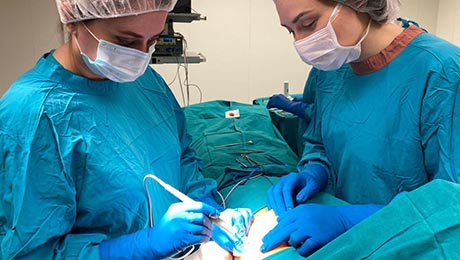
The Department of General Oncology deals with the diagnosis and surgical treatment of thyroid tumors, mammary glands, retroperitoneal space, skin and soft tissues. In these diseases, the surgical method is the leading one, but for each patient the treatment plan is developed individually for consultation with an oncologist, chemotherapist and radiologist. Due to the presence of radiotherapy and chemotherapy departments in the hospital, patients receive all the necessary treatment in one institution. An integrated approach to treatment can improve the effectiveness of medical care, improve the prognosis and quality of life of patients.
Doctors of the Department have valid certificates in the field of surgery and Oncology, trained in leading clinics in Europe and South Korea (Orsi Robotic Surgery Training Center (Ghent, Belgium), Bundan Hospital (Seoul, South Korea), University Clinic in Mannheim, Germany).
The Department provides treatment of the following diseases:
Operating range
All operations are performed in traditional ways, and minimally invasive and endoscopic. Interventions are performed using modern methods of tissue dissection and coagulation, including ligature and ultrasonic scissors, without the use of ligatures. When choosing a method of surgical treatment, preference is given to organ-preserving methods. Special attention is paid to cosmetic results. Due to the use of modern technologies, the average period of treatment of patients is 5 days.
Types of diagnostics carried out by the Department
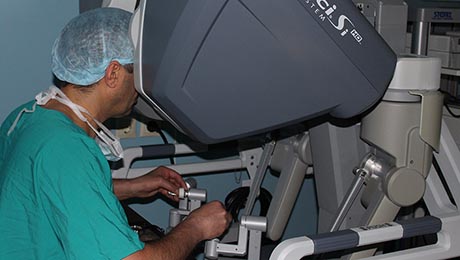
Department of Oncourology #67 specializes in the treatment of the following diseases:
Treatment is coordinated and integrated, provided that the consultation, consisting of an oncologist, radiotherapist and medical oncologist, is carried out in advance.
Work in a multidisciplinary team is supported by modern morphological studies, powerful anesthetic potential, which allows you to quickly, quickly and effectively solve the problem of oncourological treatment.
The Department is a leader in providing high-tech medical care using laparoscopic, endoscopic equipment, as well as robotic system DaVinci.
Operational benefits provided:
In addition to surgery, a combination treatment, including radiation therapy, chemotherapy, including intravesical, as well as BCG-immunotherapy.
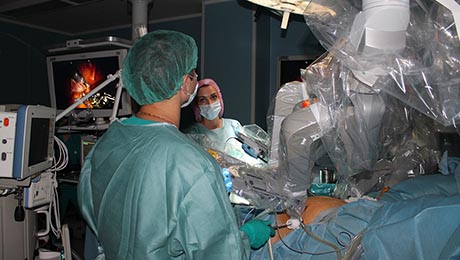
The Department is headed by Honored doctor of the Russian Federation, doctor of medical Sciences, Professor Seregin Alexander.
The staff consists of 12 specialists certified in Oncology. Many of the doctors have academic degrees of doctors and candidates of medical Sciences. All doctors of the Department are members of the Russian society of oncourologists and the European Association of Urology (EAU), active participants of Russian and European congresses.
The Department carries out unique high-tech operations, many of which are patented. Annually urological assistance to receive about 300 patients, performed more than 250 surgeries.
Operating rooms are equipped with modern equipment that allows you to perform complex oncourological interventions with minimal risk of complications.
Three different operating rooms - open, endoscopic and laparoscopic - allow you to divide the flow of patients, virtually eliminating the formation of the queue for route operations. The versatility of Botkin Hospital, the continuity among different clinical services and the active participation of the hospital administration create conditions for the treatment of patients with common oncological diseases that go beyond one nosology. For example, the joint efforts of urologists, abdominal surgeons and angiosurgeons can save patients with common cases of Sydney cancer with a massive local spread and extended vascular invasion of the inferior Vena cava.
Priority direction:
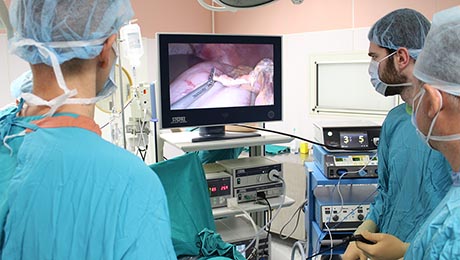
Specialists of our department perform complex operations for tumors of lungs, mediastinum, esophagus, stomach, duodenum, retroperitoneal space and spleen, in accordance with global standards of care in oncology. Mainly minimally invasive procedures are carried out, including laparoscopic and robotic interventions.

The department carries out surgical treatment of benign and malignant lesions of liver, gallbladder, bile ducts and pancreas, with active use of state-of-the-art laparoscopic technologies.
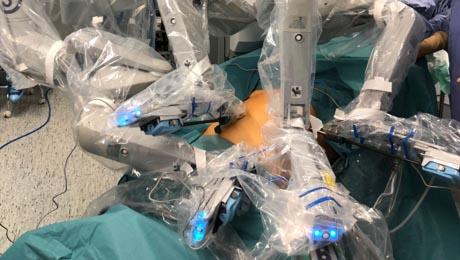
Colon cancer (colorectal cancer) in Russia ranks 3rd among all types of cancer. Every year in our country more than 50 thousand people suffer from colorectal cancer.
In our multi-profile clinic there is a possibility of complex treatment of colorectal cancer, which includes surgical treatment, chemotherapy, radiation therapy. Operations are performed in locally advanced forms of colorectal cancer with tumor invasion into the pelvic organs, abdominal organs, major vessels, with the participation of urologists, gynecologists, angiosurgeons, hepatobiliary surgeons in surgery.
Surgical treatment of colon and rectal cancer is carried out laparoscopic and open access, with expanded lymph node dissection; various combined surgical interventions are performed in the late stages of cancer using modern equipment and tools. The Department is widely used sphincter-preserving and reconstructive plastic surgery, including low localization of rectal cancer; used reservoir technology to restore the function of the lost rectum with the preservation of its obturator.
In Botkin Hospital uses a modern algorithm of treatment in the provision of emergency care to patients with acute obstructive colonic obstruction of tumor origin. After a comprehensive examination with a compensated form of tumor intestinal obstruction after a course of conservative treatment, planned operations and courses of adjuvant chemotherapy and radiation therapy are carried out. With subcompensated and decompensated colonic obstruction of the tumor Genesis, multi-stage treatment is carried out: the first stage is the stenting of the tumor stenosis zone or the formation of an unloading intestinal stoma. At the second stage, after the resolution of intestinal obstruction, radical surgery is performed, followed by postoperative chemotherapy and radiation therapy.
